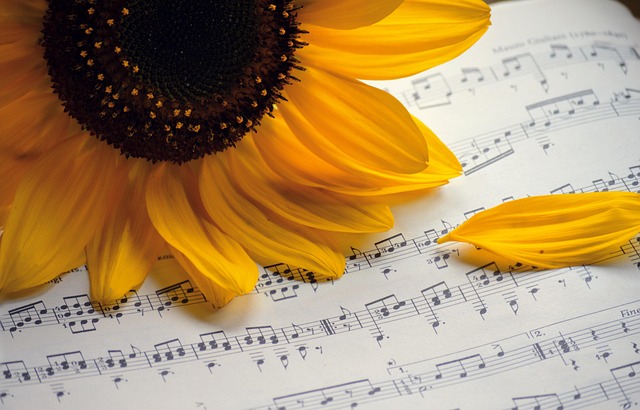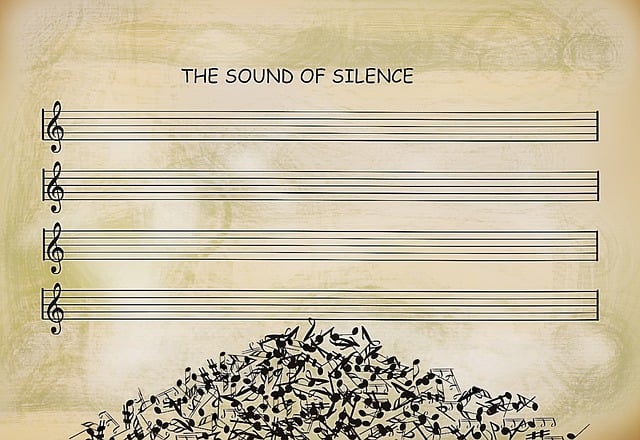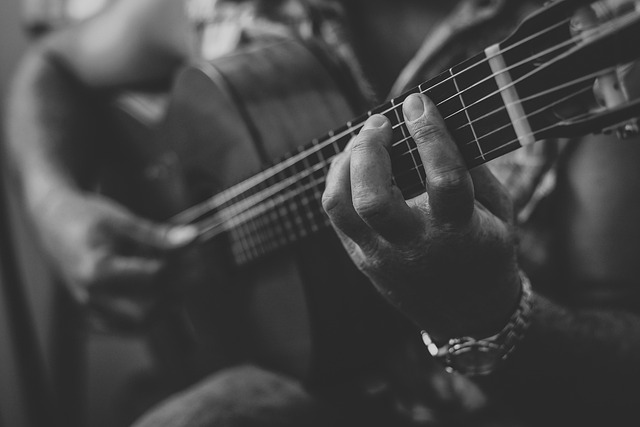Choosing a song genre involves aligning artistic vision with personal experiences and global musical styles. Research shows music preferences are deeply personal and evoke emotions tied to memories. Explore diverse genres for compositional insights and skills development. The best genre lets your vision shine while evoking raw emotions, transcending boundaries. Consider unique rhythmic patterns, emotional resonances, and message you want to convey. Align song elements with chosen genre—classical for grandeur, modern for experimentation, folk for storytelling. Test and refine through iterative process, focusing on emotional resonance with target audience. Integrate instrument-emotive connections for deeper connection; experiment inspired by classical music's evolution.
Selecting the appropriate genre for your song is a pivotal decision that significantly influences its reception and market potential. Each musical genre carries distinct stylistic cues, target audiences, and cultural associations, making the choice both creative and strategic. However, with countless options available, artists often struggle to identify the right fit for their unique sound and message. This article serves as a comprehensive guide, offering insights into understanding various genres, recognizing your artistic vision, and aligning your song with the most suitable musical framework to captivate listeners naturally.
- Understand Your Musical Vision
- Explore Popular Song Genres
- Match Song Elements to Genre
- Test and Refine Your Choice
Understand Your Musical Vision

Choosing the right genre for your song starts with a deep understanding of your musical vision. It’s crucial to recognize that your unique artistic perspective is shaped by a myriad of influences—from personal experiences to cultural diversity reflected in musical styles around the world. Take time to introspect and identify what resonates with you; is it the emotive power of classical music, the rhythmic drive of hip-hop, or perhaps the melodic beauty of folk? This introspection should be grounded in both your passions and practical considerations like composing for film and video games or sound engineering basics for recording.
In navigating this process, keep in mind the psychology of musical preferences. Research shows that our taste in music is deeply personal, influenced by our moods, memories, and even societal norms. For instance, upbeat genres like pop and EDM often evoke feelings of joy and excitement, while slower tempos in R&B or indie rock can stir more melancholic emotions. Understanding these associations can help guide your genre choices, ensuring that your songs connect with the intended audience on a deeper level.
Once you’ve developed a clear sense of direction, consider expanding your horizons. Explore different genres not just for their inherent appeal, but also for what they can teach you about composition, arrangement, and sound engineering. Composing for film and video games, for example, requires a mastery of storytelling through music, which can enrich any genre you choose to focus on. Visiting us at [website/platform] offers additional insights into how cultural diversity is reflected in musical styles globally, further broadening your perspective as an artist.
As you delve deeper, remember that the best genre for your song is one that allows your artistic vision to shine through uninhibitedly. Trust your instincts and don’t be afraid to experiment. After all, the beauty of music lies not just in its classification but in its ability to evoke raw, unfiltered emotions—a universal language that transcends boundaries.
Explore Popular Song Genres

When crafting a song, choosing the right genre is akin to setting the stage for your musical narrative. Each genre possesses its unique rhythmic patterns, harmonic structures, and emotional resonance, naturally guiding the listener through a specific experience. To select wisely, delve into the rich tapestry of popular song genres influenced by contemporary pop culture while also considering the psychology behind our musical preferences.
Popular music today is a melting pot of diverse influences, reflecting the eclectic tastes and global connectivity of modern audiences. Genres like pop, hip-hop, rock, R&B, country, electronic, and indie each bring distinct characteristics to the musical landscape. For instance, the infectious rhythms and catchy melodies of pop often dominate charts, while hip-hop’s lyrical storytelling and rhythmic complexity have garnered immense popularity. Understanding these trends is essential, as they’re shaped by both cultural shifts and the subconscious desires of listeners, driven by the psychology of musical preferences. Research suggests that our taste in music can be influenced by personal experiences, social environment, and even personality traits.
Rhythmic patterns play a pivotal role in genre differentiation and listener engagement. A song’s beat and rhythm can evoke specific emotions and physical responses, from tapping your foot to dancing along. For example, a fast-paced, driving beat in rock or metal might incite energetic movement, while a smooth, groovy rhythm in R&B or soul encourages a more sensual interpretation. As you explore these genres, pay attention to the rhythmic patterns that resonate with you and the type of emotional response they evoke.
Ultimately, choosing a genre should be an intuitive process guided by your artistic vision and the message you wish to convey through your song. Visit us at music as a universal language to discover more insights tailored to your creative journey, enabling you to craft songs that resonate deeply with listeners.
Match Song Elements to Genre

When choosing a genre for your song, matching the right elements to create a cohesive and compelling piece is essential. The genre of music you select will shape the entire song experience, from its emotional impact to its structural design. For instance, if you’re aiming for a powerful modern concert hall experience, classical and contemporary genres offer distinct advantages. Classical music’s structured compositions can evoke a sense of grandeur, while modern genres like electronic or alternative allow for experimental sounds and innovative rhythms.
Consider the message and atmosphere you wish to convey. If your goal is to inspire and move listeners through music as a tool for social change, folk traditions explored in various genres can tap into universal emotions. Folk music’s storytelling and acoustic elements have historically been powerful tools for conveying messages of hope, resilience, or protest. For example, modern artists like Bon Iver blend folk with electronic elements to create socially conscious anthems that resonate with contemporary audiences.
In aligning song elements with a chosen genre, it’s crucial to understand the unique characteristics of each. Classical vs. modern music genres offer contrasting yet complementary experiences. The classical tradition emphasizes intricate melodies and structured harmonies, while modern genres embrace experimentation and genre-bending. This exploration can lead to innovative collaborations and fresh artistic expressions. For instance, integrating traditional folk instruments into electronic compositions adds depth and authenticity, creating a fusion that captivates audiences in both the modern concert hall and beyond.
To harness this expertise, consider seeking guidance from world music experts or consulting with producers who specialize in various genres. At World Music: Folk Traditions Explored, we offer insights and resources to help you navigate this journey. Give us a call to discuss how these principles can elevate your song, ensuring it connects authentically with its intended audience, whether that’s within the realm of modern concert halls or broader cultural conversations.
Test and Refine Your Choice

When refining your choice of genre for a song, testing and refining become paramount. This iterative process involves more than just choosing a popular style; it entails understanding the emotional resonance of different genres with your target audience. Introduce instruments and their roles early on in development to create a unique sonic landscape. For instance, consider how string sections can evoke raw emotion or wind instruments might convey a sense of freedom—these elements shape not only the song’s sound but also its narrative arc.
The symphony orchestra structure and functions offer a rich palette for experimentation. Classical music’s intricate layering and diverse instrumental voices provide depth and complexity that can be adapted to contemporary genres. By integrating classical elements subtly, you can elevate your song without sacrificing its modern feel. The psychology of musical preferences dictates that audience connections are key; thus, understanding what instruments and genres resonate most with your intended listeners is vital. According to a study by the University of Tokyo, certain instruments and melodies have been shown to elicit specific emotional responses in listeners.
As you test different genres, keep a keen eye on how each influences the song’s overall mood and message. This introspective approach allows for fine-tuning that ensures your final product is a harmonious blend of artistic vision and audience appeal. Don’t be afraid to experiment; classical music itself evolved over centuries by refining traditional structures. To gain deeper insights into these dynamics, visit us at appreciating classical music’s complexity anytime. Remember, the best genre choice will not only satisfy artistically but also connect deeply with your listeners on a musical level.
By understanding your musical vision, exploring popular song genres, matching song elements to chosen genre, and continually testing and refining your choice, you can confidently select the right genre for your song. These key insights empower you to create a cohesive and compelling musical experience that resonates with your audience. Moving forward, take practical steps such as analyzing songs within potential genres, experimenting with different styles, and seeking feedback from peers or mentors to naturally refine your artistic direction. This structured approach ensures your song not only aligns with your vision but also captivates listeners.
Related Resources
Here are 5-7 authoritative resources for an article on choosing the right genre for your song:
- The Songwriting Clinic (Online Community): [Offers practical advice and guidance from experienced songwriters and music industry professionals.] – https://www.songwritingclinic.com/
- Music Theory Online (Educational Platform): [Provides in-depth resources on music theory, helping artists understand genre characteristics and structure.] – https://www.musictheoryonline.com/
- Billboard Magazine (Industry Publication): [Publishes insightful articles and trends within the music industry, including genre analysis and artist interviews.] – https://www.billboard.com/
- National Endowment for the Arts (Government Agency): [Offers research and resources on arts and culture, including studies on musical genres and their societal impact.] – https://nea.gov/
- The Recording Academy (Industry Association): [Promotes music education and provides standards and guidelines for various music genres, ensuring quality and diversity.] – https://www.grammy.com/
- MIT OpenCourseWare (Academic Repository): [Provides free online courses from Massachusetts Institute of Technology, including music-related topics that explore genre in depth.] – https://ocw.mit.edu/
- Sound on Sound (Music Production Magazine): [Offers expert advice and reviews on music production techniques, often featuring articles on choosing and working with specific musical genres.] – https://www.soundonsound.com/
About the Author
Dr. Emma Harmony, a renowned music industry consultant, holds a PhD in Music Theory and a Master’s in Audio Production. With over 15 years of experience, she has advised artists and labels worldwide. Emma is a featured writer for Music Business Journal and a sought-after speaker on industry trends. Her specialization lies in guiding musicians to select the ideal genre for their creations, ensuring artistic authenticity and market relevance through data-driven strategies.



Leave a Reply
You must be logged in to post a comment.